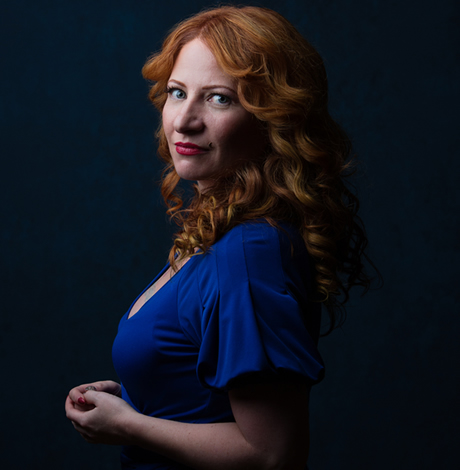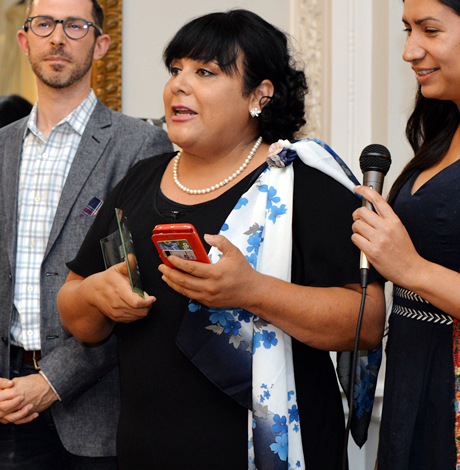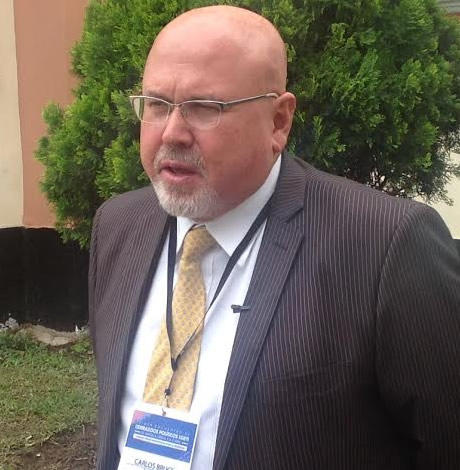Books
Former Obama admin. appointee releases ‘SELF-ish’ memoir
Trans activist Chloe Schwenke shares life story of balancing academia and family
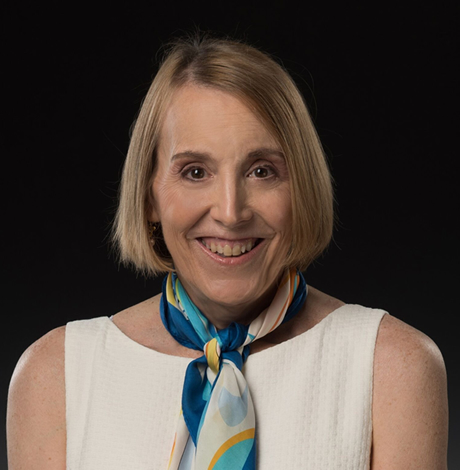
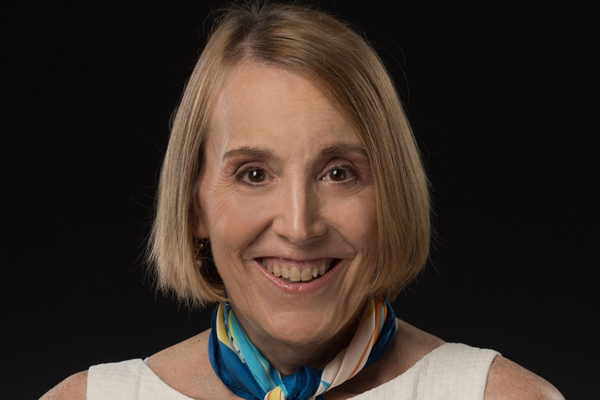
Chloe Schwenke says coming out wreaked havoc on her professional career. Despite a stellar resume and Ph.D. she was repeatedly fired. (Photo by Carl Cox Photography; courtesy Schwenke)
About a decade ago when Chloe Schwenke and her then-wife Christine Lucas were ready to share the news with their two children (then 8 and 13) that their dad was going to start living as a woman, Schwenke knew she needed to get out in front with some damage control.
Schwenke and her wife met with 12 different couples whose kids were friends with theirs.
“We knew the first time the kids saw me as Chloe, they would go screaming back home to their parents,” Schwenke says. “The experts told us everything depends on how those parents react. Once the parents were on board with it, the kids came through just fine.”
It’s one of many stories relayed in “SELF-ish: a Transgender Awakening,” Schwenke’s new memoir. It’s out today as a trade paperback from Red Hen Press, a California-based publisher.
Schwenke, who holds a Ph.D in public policy, is a former Obama administration appointee who worked for years in international development. Coming out as trans in 2008 wreaked havoc on her professional career — she recounts being fired four different times and long periods of unemployment. Schwenke, who doesn’t want to get specific but says she’s “in her 60s,” now works in the Association for Writers & Writing Programs, a literary support group at the University of Maryland, College Park.
The book didn’t start out being a book at all. Schwenke enjoys writing and blogging for relaxation and started with journaling, exploring her journey through transitioning and unpacking “why it took me 50-some years to get around to it.”
“It seemed sort of all over the place,” Schwenke, who is no longer married but still lives with Lucas in Olney, Md., says. “It had integrity, but it didn’t seem to me that these stories related to one another until suddenly they did. … I started to see it as something that cohered as a way to be myself in the world in a way I thought might be helpful to other people.”
Exploring all that took work but was an illuminating process, she says. Incidents from childhood came roaring back to her consciousness with “remarkable clarity.” She spent a year writing it, then after securing a deal with Red Hen, one of three publishers she contacted (the other two weren’t interested but Red Hen bit immediately), she spent another two years working with two editors to glean the work into something publishable. The 260-page paperback retails for $17.95 and is available at all the usual online book channels or via chloemaryland.net.
Schwenke on:
• how the book evolved: “They wanted to hear more about my explorations of dating men and a bit less about my being a Quaker. … I’d had some dating experiences end really badly and though I hadn’t initially planned to include much of that, though it was in my journal, they said, ‘Just sit with that awhile,’ because they thought that would be of interest to readers.”
• her concerns with going public with her life: “My real concern is whether people are gonna sue me. I’ve been fired four times just for being trans, arrested, beaten up, called every name you can think of. I did name names but just first names. I thought, ‘To hell with it, these are important interactions and people need to know how people behave toward trans people.’”
• the title: “When I came out to family, some people were really angry with me. Two of my three brothers didn’t speak to me for eight years. A recurring response was, ‘How could you be so selfish?’ There was this wave of anger. … I decided to put the hyphen in and reclaim that word.”
• how she feels anti-trans bias is part of broader toxic patriarchy: “I think there are lots of unreconciled feelings hetero men have about sexuality because they’ve never had to think through it or deal with it because they’ve just always been the boss, they’ve called the shots. When somebody goes in the opposite direction, it raises a lot of profound questions. They think, ‘Why would anybody want to do that,’ and they have a very deep-rooted gut reaction to the operation itself. … Every time we told other couples, the men immediately crossed their legs. They have a very strong, protective reaction.”
• working with the State Department and monthly visits to the Obama White House: “Don Steinberg (former deputy administrator at the United States Agency for International Development) was a huge ally and really pushed me and the LGBT community to be verbal and outspoken though we didn’t get much support from the administration at the time, though they also didn’t stand in our way. … The White House was fantastic. They looked at us and said, “What can we do for you?” That was their mantra every month and that really started with (former deputy director of the White House Office of Public Engagement) Brian Bond.
• Gens. Y and Z’s comfort with gender fluidity: “They’re asking questions and not just defaulting to the binary, which is great. They’re just really sitting with their gender identity for awhile before they declare anything and that’s such a healthy thing. My daughter is 18 and all her friends just think it’s cool.”
• trans visibility in the age of Caitlyn Jenner: “She’s a really canny person. She knows how to play the media and I really admire that in these exchanges we see, she never seems to be the victim. I couldn’t disagree with her politics more, though. She’s a stalwart Republican and with a president and especially vice president as transphobic as we have now, how she reconciles that, I don’t know.”
• her relationship with her ex-wife: “We are no longer married but we still share the same house and jointly raise our daughter. Christine is my best friend and strongest ally.”
Books
New book offers observations on race, beauty, love
‘How to Live Free in a Dangerous World’ is a journey of discovery

‘How to Live Free in a Dangerous World: A Decolonial Memoir’
By Shayla Lawson
c.2024, Tiny Reparations Books
$29/320 pages
Do you really need three pairs of shoes?
The answer is probably yes: you can’t dance in hikers, you can’t shop in stilettos, you can’t hike in clogs. So what else do you overpack on this long-awaited trip? Extra shorts, extra tees, you can’t have enough things to wear. And in the new book “How to Live Free in a Dangerous World” by Shayla Lawson, you’ll need to bring your curiosity.

Minneapolis has always been one of their favorite cities, perhaps because Shayla Lawson was at one of Prince’s first concerts. They weren’t born yet; they were there in their mother’s womb and it was the first of many concerts.
In all their travels, Lawson has noticed that “being a Black American” has its benefits. People in other countries seem to hold Black Americans in higher esteem than do people in America. Still, there’s racism – for instance, their husband’s family celebrates Christmas in blackface.
Yes, Lawson was married to a Dutch man they met in Harlem. “Not Haarlem,” Lawson is quick to point out, and after the wedding, they became a housewife, learned the language of their husband, and fell in love with his grandmother. Alas, he cheated on them and the marriage didn’t last. He gave them a dog, which loved them more than the man ever did.
They’ve been to Spain, and saw a tagline in which a dark-skinned Earth Mother was created. Said Lawson, “I find it ironic, to be ordained a deity when it’s been a … journey to be treated like a person.”
They’ve fallen in love with “middle-American drag: it’s the glitteriest because our mothers are the prettiest.” They changed their pronouns after a struggle “to define my identity,” pointing out that in many languages, pronouns are “genderless.” They looked upon Frida Kahlo in Mexico, and thought about their own disability. And they wish you a good trip, wherever you’re going.
“No matter where you are,” says Lawson, “may you always be certain who you are. And when you are, get everything you deserve.”
Crack open the front cover of “How to Live Free in a Dangerous World” and you might wonder what the heck you just got yourself into. The first chapter is artsy, painted with watercolors, and difficult to peg. Stick around, though. It gets better.
Past that opening, author Shayna Lawson takes readers on a not-so-little trip, both world-wide and with observant eyes – although it seems, at times, that the former is secondary to that which Lawson sees. Readers won’t mind that so much; the observations on race, beauty, love, the attitudes of others toward America, and finding one’s best life are really what takes the wheel in this memoir anyhow. Reading this book, therefore, is not so much a vacation as it is a journey of discovery and joy.
Just be willing to keep reading, that’s all you need to know to get the most out of this book. Stick around and “How to Live Free in a Dangerous World” is what to pack.
The Blade may receive commissions from qualifying purchases made via this post.
Books
Story of paralysis and survival features queer characters
‘Unswerving: A Novel’ opens your eyes and makes you think

‘Unswerving: A Novel’
By Barbara Ridley
c.2024, University of Wisconsin Press
$19.95 / 227 pages
It happened in a heartbeat.
A split-second, a half a breath, that’s all it took. It was so quick, so sharp-edged that you can almost draw a line between before and after, between then and now. Will anything ever be the same again? Perhaps, but maybe not. As in the new book “Unswerving” by Barbara Ridley, things change, and so might you.

She could remember lines, hypnotizing yellow ones spaced on a road, and her partner, Les, asleep in the seat beside her. It was all so hazy. Everything Tave Greenwich could recall before she woke up in a hospital bed felt like a dream.
It was as though she’d lost a month of her life.
“Life,” if you even wanted to call it that, which she didn’t. Tave’s hands resembled claws bent at the wrist. Before the accident, she was a talented softball catcher but now she could barely get her arms to raise above her shoulders. She could hear her stomach gurgle, but she couldn’t feel it. Paralyzed from the chest down, Tave had to have help with even the most basic care.
She was told that she could learn some skills again, if she worked hard. She was told that she’d leave rehab some day soon. What nobody told her was how Les, Leslie, her partner, girlfriend, love, was doing after the accident.
Physical therapist Beth Farringdon was reminded time and again not to get over-involved with her patients, but she saw something in Tave that she couldn’t ignore. Beth was on the board of directors of a group that sponsored sporting events for disabled athletes; she knew people who could serve as role models for Tave, and she knew that all this could ease Tave’s adjustment into her new life. It was probably not entirely in her job description, but Beth couldn’t stop thinking of ways to help Tave who, at 23, was practically a baby.
She could, for instance, take Tave on outings or help find Les – even though it made Beth’s own girlfriend, Katy, jealous.
So, here’s a little something to know before you start reading “Unswerving”: author Barbara Ridley is a former nurse-practitioner who used to care for patients with spinal cord injuries. That should give readers a comfortable sense of satisfaction, knowing that her experiences give this novel an authenticity that feels right and rings true, no faking.
But that’s not the only appeal of this book: while there are a few minor things that might have readers shaking their heads (HIPAA, anyone?), Ridley’s characters are mostly lifelike and mostly likable. Even the nasties are well done and the mysterious character that’s there-not-there boosts the appeal. Put everyone together, twist a little bit to the left, give them some plotlines that can’t ruined by early guessing, and you’ve got a quick-read novel that you can enjoy and feel good about sharing.
And share you will because this is a book that may also open a few eyes and make readers think. Start “Unswerving” and you’ll (heart) it.
The Blade may receive commissions from qualifying purchases made via this post.
Books
Examining importance of queer places in history of arts and culture
‘Nothing Ever Just Disappears’ shines with grace and lyrical prose
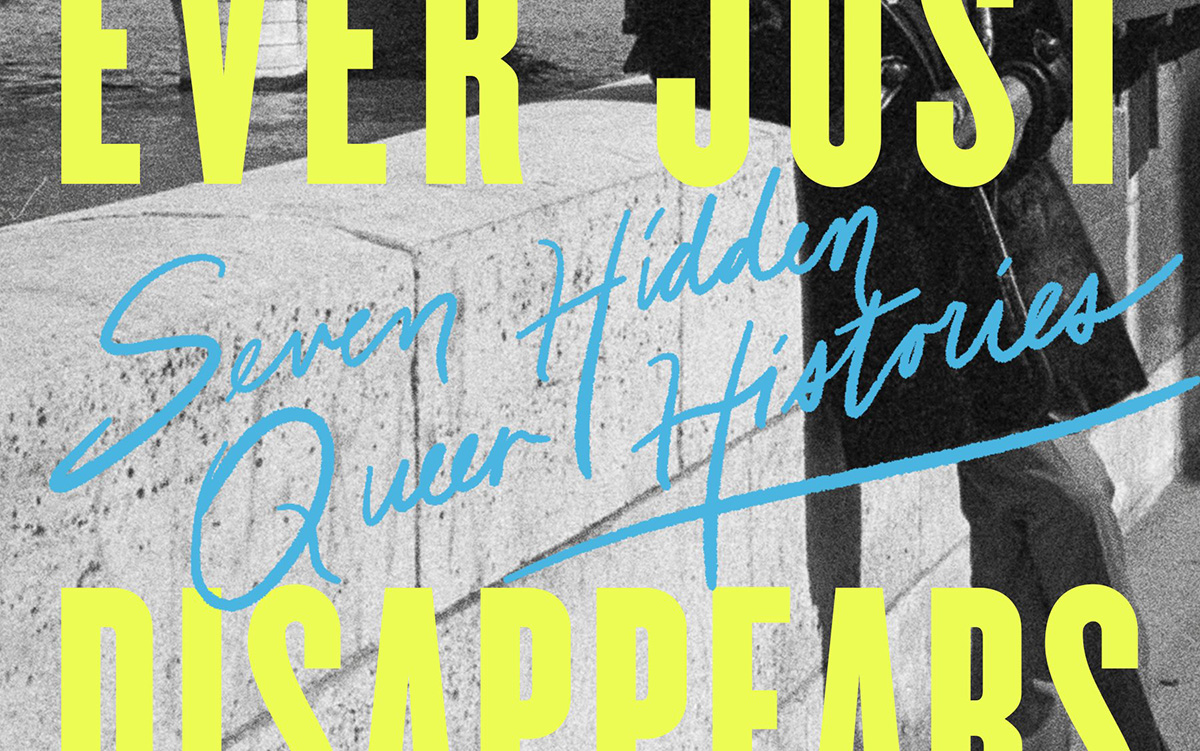
‘Nothing Ever Just Disappears: Seven Hidden Queer Histories’
By Diarmuid Hester
c.2024, Pegasus Books
$29.95/358 pages
Go to your spot.
Where that is comes to mind immediately: a palatial home with soaring windows, or a humble cabin in a glen, a ramshackle treehouse, a window seat, a coffeehouse table, or just a bed with a special blanket. It’s the place where your mind unspools and creativity surges, where you relax, process, and think. It’s the spot where, as in the new book “Nothing Ever Just Disappears” by Diarmuid Hester, you belong.

Clinging “to a spit of land on the south-east coast of England” is Prospect Cottage, where artist and filmmaker Derek Jarman lived until he died of AIDS in 1994. It’s a simple four-room place, but it was important to him. Not long ago, Hester visited Prospect Cottage to “examine the importance of queer places in the history of arts and culture.”
So many “queer spaces” are disappearing. Still, we can talk about those that aren’t.
In his classic book, “Maurice,” writer E.M. Forster imagined the lives of two men who loved one another but could never be together, and their romantic meeting near a second-floor window. The novel, when finished, “proved too radical even for Forster himself.” He didn’t “allow” its publication until after he was dead.
“Patriarchal power,” says Hester, largely controlled who was able to occupy certain spots in London at the turn of the last century. Still, “queer suffragettes” there managed to leave their mark: women like Vera Holme, chauffeur to suffragette leader Emmeline Pankhurst; writer Virginia Woolf; newspaperwoman Edith Craig, and others who “made enormous contributions to the cause.”
Josephine Baker grew up in poverty, learning to dance to keep warm, but she had Paris, the city that “made her into a star.” Artist and “transgender icon” Claude Cahun loved Jersey, the place where she worked to “show just how much gender is masquerade.” Writer James Baldwin felt most at home in a small town in France. B-filmmaker Jack Smith embraced New York – and vice versa. And on a personal journey, Hester mourns his friend, artist Kevin Killian, who lived and died in his beloved San Francisco.
Juxtaposing place and person, “Nothing Ever Just Disappears” features an interesting way of presenting the idea that both are intertwined deeper than it may seem at first glance. The point is made with grace and lyrical prose, in a storyteller’s manner that offers back story and history as author Diarmuid Hester bemoans the loss of “queer spaces.” This is really a lovely, meaningful book – though readers may argue the points made as they pass through the places included here. Landscapes change with history all the time; don’t modern “queer spaces” count?
That’s a fair question to ask, one that could bring these “hidden” histories full-circle: We often preserve important monuments from history. In memorializing the actions of the queer artists who’ve worked for the future, the places that inspired them are worth enshrining, too.
Reading this book may be the most relaxing, soothing thing you’ll do this month. Try “Nothing Ever Just Disappears” because it really hits the spot.
The Blade may receive commissions from qualifying purchases made via this post.
-

 District of Columbia2 days ago
District of Columbia2 days agoReenactment of first gay rights picket at White House draws interest of tourists
-

 District of Columbia2 days ago
District of Columbia2 days agoNew D.C. LGBTQ+ bar Crush set to open April 19
-

 Arizona2 days ago
Arizona2 days agoAriz. governor vetoes anti-transgender, Ten Commandments bill
-

 Africa4 days ago
Africa4 days agoUgandan activists appeal ruling that upheld Anti-Homosexuality Act

